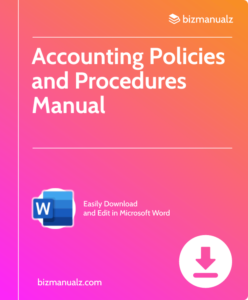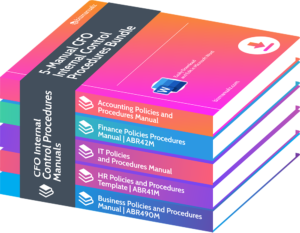Do All Accountants Have to Follow GAAP?

Accountants are vital for businesses’ financial operations, making sure accurate and trustworthy financial info is reported. Adhering to standards and guidelines is essential for professionals in their field, like GAAP – Generally Accepted Accounting Principles. Do all accountants have to follow GAAP?
Understanding GAAP and its Importance
To gain a comprehensive understanding of GAAP and its importance in financial reporting, delve into this section. The sub-sections cover the definition of GAAP and highlight its significance in accurate and transparent financial reporting.
GAAP is a set of rules and standards that control how financial statements are prepared and presented. It’s a common framework for accountants, so consistency and comparability in financial reporting is achieved. Adhering to GAAP ensures financial statements are and accurate representation of and organization’s position and performance.
Though, not all accountants need to stick to GAAP. Sometimes, specific industry regulations or reporting requirements may mean GAAP isn’t necessary. They’d have to follow the industry-specific guidelines instead. Small businesses or individuals may also not need GAAP-compliant financial statements, so alternative accounting methods can be used.
Accountants can take steps to ensure compliance with GAAP. They must stay up to date with any changes or updates to the accounting standards issued by regulatory bodies.
Professional development opportunities can also help improve knowledge and skills in accounting principles. Internal control procedures should be employed too, like checks and balances within and organization’s accounting systems, to detect and prevent errors or irregularities in financial reporting.
Definition of GAAP
GAAP, otherwise known as Generally Accepted Accounting Principles, is the savior of financial reporting. It provides a framework for accuracy and transparency in the presentation of financial statements. Following GAAP ensures consistency and comparability, allowing companies to gain credibility and build trust with stakeholders.
These standards are set by the Financial Accounting Standards Board (FASB) in the US, and outline how to recognize revenue, measure assets and liabilities, and present financial information. This helps to make financial information reliable and useful for decision-making. It also allows for comparison of financial performance across companies and industries.
One key characteristic of GAAP is its adaptability. As businesses change and new transactions arise, GAAP updates to address these issues. This keeps it relevant to the business environment, such as recent changes to standards for revenue recognition and lease accounting.
To stay on top of the latest changes, finance and accounting professionals should regularly refer to FASB’s website or attend professional development courses. Doing so will help them keep GAAP’s superhero powers alive.
Importance of GAAP in Financial Reporting
GAAP, or Generally Accepted Accounting Principles, is key to financial reporting. These consistent rules guarantee accuracy in financial statements. Adhering to GAAP lets companies give stakeholders dependable and comparable data about their financial performance.
In the world of financial reporting, GAAP is essential. It’s a guide for accountants and auditors, making sure financial statements are prepared accurately and follow accepted practices. This helps investors, creditors, and others make prudent decisions based on reliable financial information.
GAAP has a special advantage – it boosts transparency in financial reporting. By having a standard set of instructions, it allows comparability across industries. This uniformity builds trust among users of financial statements, like investors and lenders.
Using GAAP also helps businesses obey the law. Many countries require GAAP for preparing financial reports. Not following these principles can lead to major penalties and legal troubles. Adhering to GAAP shows companies are serious about ethical practices.
It’s vital for companies to keep up with changing accounting standards to stay relevant. Otherwise, financial reports may be outdated and fail to show important changes within the organization. Following GAAP ensures companies stay up-to-date with the latest accounting rules and keep giving accurate insights into their financial situation.
Who is Responsible for Following GAAP?
To understand who is responsible for following GAAP, explore the obligations of accountants and the role of auditors. This will provide a concise solution for the section, “Who is Responsible for Following GAAP?”, with sub-sections focusing on the duties accountants have and how auditors contribute to upholding GAAP standards.
Obligations of Accountants
Accountants have many duties, such as:
- Keeping accurate financial records. This involves recording transactions, making financial statements and verifying accuracy.
- Following the GAAP standards when preparing financial statements. This ensures consistency and comparability.
- Performing audits or reviews of financial statements. This helps spot errors and irregularities.
- Providing financial advice to their clients. This involves analyzing data, spotting trends and giving recommendations.
- Upholding ethical standards. This means maintaining confidentiality, avoiding conflicts of interest, and acting in the best interest.
An example is a small business which hired and accountant to manage its finances. The accountant kept accurate records and applied GAAP, which impressed investors. This enabled funding for expansion.
Role of Auditors

ISO 9001 Auditor
Financial Auditors are key to making sure companies follow Generally Accepted Accounting Principles (GAAP). Their job is to check financial statements, spot mistakes and errors, and give and unbiased opinion of a company’s financial health.
- Auditors review data and run tests to make sure financial records follow GAAP standards.
- They look for any risks or weaknesses in a company’s financial reporting process.
- This helps stop fraud and improve financial management.
- Auditors provide and independent view on the accuracy and fairness of financial statements. This gives stakeholders, like investors and creditors, more trust in their decisions.
- Through their research, auditors can spot misstatements or omissions in financial reports. This keeps information disclosed by companies transparent and protects the interests of shareholders.
- Additionally, auditors can offer advice for improving internal controls and risk management systems. This helps organizations get better and reach their goals.
Furthermore, auditors make sure companies stay accountable. By making sure companies stick to GAAP standards, they help management teams do the right thing and stop fraud from hurting stakeholders.
To strengthen the position of auditors, the following could be considered:
- Improve audit standards: Updating and improving audit standards will give auditors a clear framework.
- Increase auditor independence: Rules should stop auditors from taking on non-audit services for the same organization they audit.
- Strengthen regulation: Governments and regulatory bodies should keep and eye on auditors to make sure they stick to standards.
- More transparency: Companies should share info about their auditor selection process, like the criteria or any rotation policies.
- Involve stakeholders: Getting shareholders and creditors involved in the audit process can make sure companies stay accountable.
These ideas aim to help auditors uphold GAAP principles. This will increase trust, transparency, and accountability when it comes to financial reporting. By improving the role of auditors, companies can reduce risks, bring in investment, and grow sustainably.
Exceptions to GAAP Compliance
To better understand the Exceptions to GAAP Compliance, delve into the industry-specific standards and the International Financial Reporting Standards (IFRS). Explore how these sub-sections offer alternative solutions for accountants, allowing flexibility in financial reporting and compliance outside of the standard GAAP regulations.
Industry-specific Standards
Check out these industry-specific accounting standards:
- Banking has the Current Expected Credit Losses (CECL) Framework.
- Healthcare has the Healthcare Providers Revenue Recognition standard.
- Insurance has the Financial Instruments – Insurance Contracts standard.
Each standard tackles unique challenges and requirements in its sector. For example, CECL helps banks assess credit risk and estimate expected credit losses. Healthcare providers can use their revenue recognition standard to report revenues from patient services. and insurance contracts are covered by the insurance contracts standard.
Pro Tip: Get to know the relevant standards for your industry to ensure accurate financial reporting. Or, why not try to figure out which rules don’t apply? Welcome to IFRS – where consistency is just and idea.
International Financial Reporting Standards (IFRS)
The International Financial Reporting Standards (IFRS) provide a unified framework for financial statements. This ensures consistency and enables comparison between various countries and industries.
IFRS includes various standards, such as IFRS 9 for financial instruments, IFRS 15 for revenue recognition and IFRS 16 for leases. Adoption of these standards varies with each country’s regulatory system.
It is important to understand the specific requirements of IFRS standards applicable to your industry. This helps in accurate financial reporting and avoiding severe consequences of non-compliance with GAAP.
Consequences of Non-Compliance with GAAP
To understand the consequences of non-compliance with GAAP, dive into the legal implications and the potential damage to reputations. Discover how deviating from GAAP standards can lead to legal challenges and the negative impact it can have on the credibility and standing of individuals or organizations.
Legal Implications
The legal repercussions of not following GAAP standards are serious. Let’s have a look at the table:
| Consequences | Description |
|---|---|
| Lawsuits | Companies can be sued by investors, shareholders or regulators for not revealing important info in financial statements. |
| Fines and Penalties | Regulatory bodies might impose hefty fines and penalties for breaking GAAP. |
| Loss of Business Opportunities | Companies not compliant with GAAP may miss out on partners, clients and investors who prefer ethical practices. |
| Reputational Damage | Public trust in a company may be harmed if they are found to have manipulated financial reporting or neglected accounting standards. |
| Regulatory Scrutiny | Non-compliant businesses may draw increased attention from agencies like the SEC or financial authorities. |
These implications can affect the company’s financial stability and future growth prospects. For example, in 2001 Enron Corporation collapsed due to fraudulent accounting practices. They faced many lawsuits, bankruptcy and investigations into misconduct.
This is a reminder to adhere to GAAP to maintain accountability, transparency and legal compliance within organizations to avoid serious legal repercussions. Neglecting to follow GAAP can lead to serious consequences.
Damage to Reputations
It’s essential for businesses to recognize that any harm to their reputations goes beyond just financial losses. Not sticking to GAAP ought not to be taken lightly – take remedial steps quickly:
- Organize regular audits
- Construct powerful internal control systems
- Obtain professional assistance to guarantee adhering to regulations
- Interact openly with shareholders
By emphasizing on complying with GAAP, companies can maintain their reputation and create a basis of trust. Don’t gamble with the potential success of your business by overlooking this significant aspect! Regardless if you abide by GAAP or not, bear in mind, the outcomes of not following may make your balance sheet look as bare as a broken piggy bank.
Accountants Have to Follow GAAP
Accountants don’t have to stick to GAAP in every case. GAAP is a set of rules for financial reporting in the US, but other frameworks can be used. For instance, if and accountant works for a private company that doesn’t have external reporting needs, they can use International Financial Reporting Standards (IFRS). It all depends on the needs of the company.
Specialized services may require different accounting methods. Tax planning and preparation need to follow IRS rules instead of GAAP. To stay accurate and compliant, accountants must stay up-to-date with any changes to accounting frameworks. They can do this by attending professional development courses and subscribing to industry publications.
Frequently Asked Questions

1. Do all accountants have to follow GAAP?
Yes, all accountants are required to follow Generally Accepted Accounting Principles (GAAP) when preparing financial statements. GAAP provides uniformity and consistency in financial reporting, ensuring accurate and reliable information for stakeholders.
2. What is the purpose of GAAP?
The main purpose of GAAP is to standardize financial reporting practices. It ensures that financial statements are prepared in a consistent and transparent manner, allowing users to make informed decisions based on reliable information.
3. Who establishes GAAP?
GAAP is established by the Financial Accounting Standards Board (FASB) in the United States. The FASB is and independent organization responsible for developing and updating the accounting standards followed by all accountants.
4. Are there any exceptions to following GAAP?
In certain situations, there may be limited exceptions to following GAAP. These exceptions typically arise due to specific industry requirements or unique circumstances. However, such exceptions must be disclosed in the financial statements.
5. Do international accountants follow GAAP?
No, international accountants do not follow GAAP. Instead, they adhere to International Financial Reporting Standards (IFRS), which is a set of accounting principles recognized globally. However, efforts have been made to converge GAAP and IFRS to reduce differences between the two frameworks.
6. Can a company prepare financial statements without following GAAP?
No, companies are generally required to follow GAAP when preparing financial statements. Apart from legal obligations, adherence to GAAP ensures credibility, facilitates comparisons with other companies, and enhances the trust of investors, creditors, and other stakeholders.

















Leave a Reply